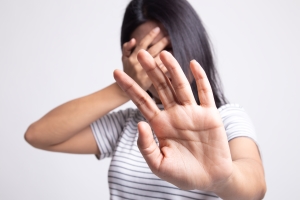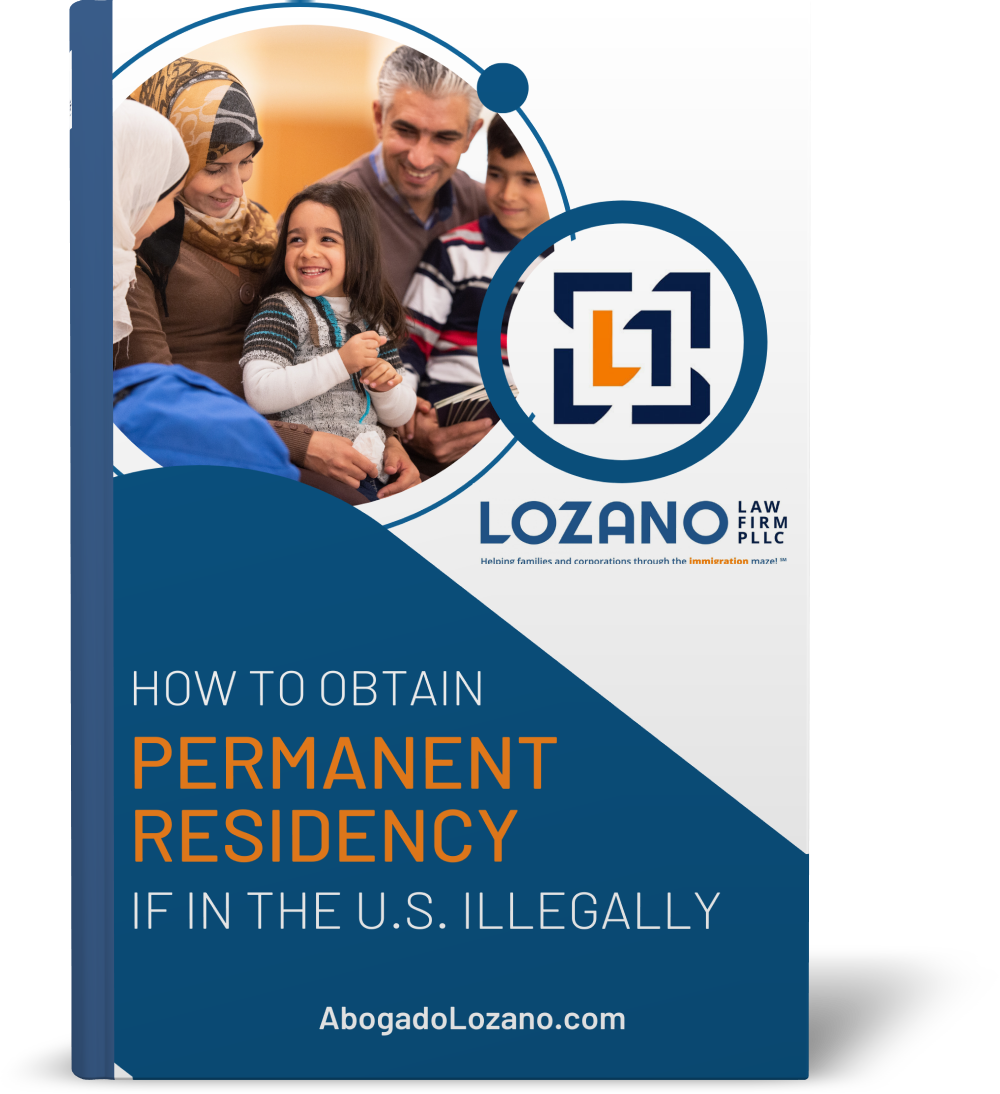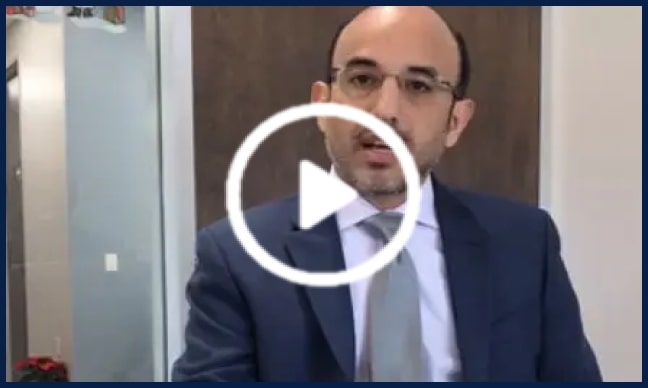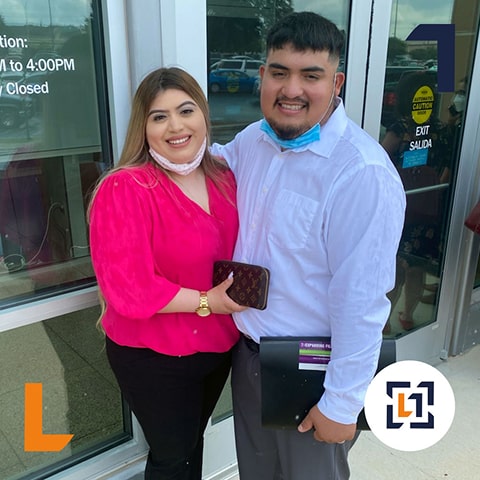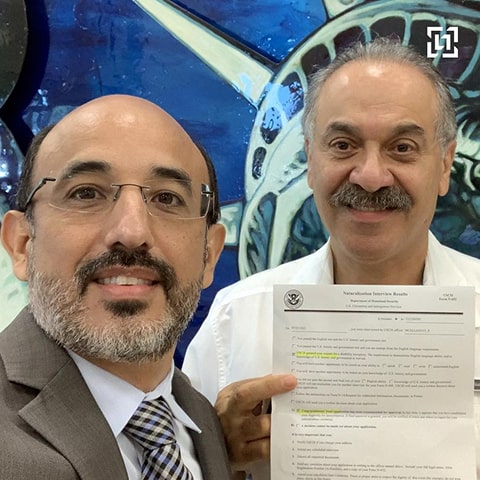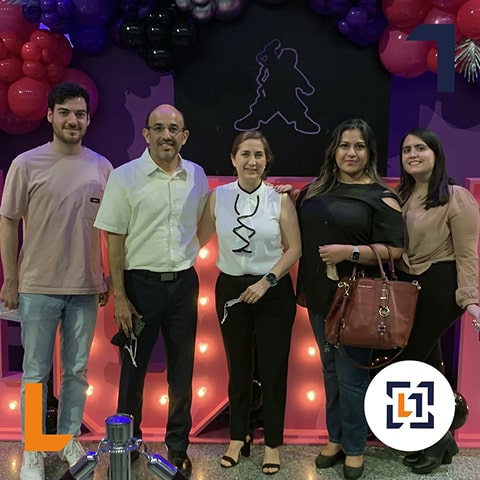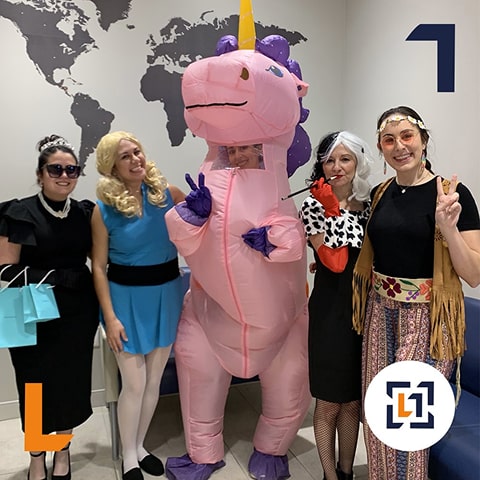A VAWA immigration lawyer is a lifeline to those who suffered abuse and domestic violence. In a world striving for justice and protection, the Violence Against Women Act (VAWA) stands as a vital piece of legislation for immigrants in the United States. One of the significant benefits it provides is the opportunity for victims to apply for a Green Card. It can grant them permanent residency and a chance to rebuild their lives.
In this comprehensive guide, you will learn how victims can obtain legal status, empowering them with information and hope for a better future.
Why You Need A VAWA Immigration Lawyer
If you’re planning to go through this path, you might wonder: is there a VAWA lawyer near me? Yes, there is, especially if you’re living in Texas. Obtaining legal assistance when pursuing a Green Card through a VAWA self-petition simplifies the complex process and enhances your chances of success.
Here’s how VAWA attorneys can support you in such situations.
In-Depth Understanding Of The Self-Petition Process
VAWA lawyers possess extensive knowledge of the complex requirements of the self-petition process. This ensures thorough preparation of your case for the best possible outcome.
Guidance & Accuracy
Navigating the VAWA immigration program involves complexities such as evidence collection and precise form completion. VAWA lawyers offer personalized guidance to ensure accurate compilation and submission of all necessary documents, alleviating stress.
Advocate Your Rights
Legal experts are committed to advocating for the rights and interests of survivors. Their empathetic and dedicated approach ensures survivors’ voices are heard, and their needs are met.
Culturally Sensitive Approach
Survivors come from diverse backgrounds, and legal professionals recognize the unique challenges different communities face. They provide culturally sensitive support, fostering an environment of trust and understanding.
Empowerment & Informed Decisions
Beyond legal procedures, immigration attorneys focus on empowering survivors throughout their journey. By providing knowledge, survivors can confidently make informed decisions, taking control of their lives and futures.
If you’re a survivor of abuse seeking a Green Card through a VAWA self-petition, engaging a lawyer can offer essential support. Their experience, dedication, and guidance can help you navigate the complexities of the legal process. It can empower you toward healing, strength, and a brighter future. Your journey is significant, and you can approach it with confidence and hope with a legal professional.
Understanding VAWA & Its Purpose
In 1994, the U.S. decided to take a big step to address a huge problem – violence against women. VAWA isn’t just about a catchy name; it’s a comprehensive law that aims to fight all sorts of violence – from domestic abuse to stalking and sexual assault.
It is like a shield of protection and support for those who need it most. VAWA recognizes that victims need more than just words – they require resources and help. So, it’s not just about saying “violence is bad” but about providing tools to tackle the issue head-on.
“Violence Against Women Act” also doesn’t discriminate. It’s for everyone – women, men, kids – anyone who’s been a victim. By including every individual, VAWA sends a strong message that violence is not okay, no matter who you are.
One of the remarkable things the Violence Against Women Act does is provide a chance for victims to apply for a Green Card. That’s like a golden ticket to staying in the United States permanently. It’s a way for victims to escape a bad situation, get stability, and build a new life. VAWA isn’t just words on paper; it’s a lifeline for those who need it, offering protection and a chance for a brighter future.
How To Qualify For VAWA
To be Green Card holders through a VAWA self-petition, an individual must meet certain criteria. These criteria extend not only to women but also to men and children who are victims of battery or extreme cruelty, thereby reflecting the inclusivity of the law.
Abuse By A U.S. Citizen Or Permanent Resident
The abuse must be committed by a U.S. citizen or a lawful permanent resident spouse, parent, or child. This is a crucial criterion as it ensures that the law serves its intended purpose – protecting victims from the clutches of abusers.
Eligible Relationship
There must be a qualifying relationship with the abuser. This includes being a spouse, child, or parent. The evidence to prove the relationship may include marriage certificates, birth certificates, or other legal documents.
Residence Requirement
The victim must demonstrate that they lived with the abuser at some point, either in the United States or its territories. This requirement acknowledges the complexity of abusive relationships and prevents fraudulent claims.
Good Moral Character
The applicant must possess good moral character, which can be assessed through background checks and personal interviews.
Credible Evidence Of Abuse
Providing credible evidence of the abuse is essential. This can include police reports, medical records, affidavits from witnesses, and photographs. Documentation is pivotal in substantiating the claims in the self-petition.
Filing The VAWA Self-Petition
After meeting the eligibility criteria, the next step is filing the VAWA self-petition. This involves submitting Form I-360, Petition for Amerasian, Widow(er), or Special Immigrant, along with all the required supporting documents. The petitioner must prove the eligibility, the legitimacy of the relationship, and the abuse endured. It’s important to remember that VAWA self-petitions can be complex, and seeking legal assistance can significantly improve the chances of success.
Adjustment Of Status – Applying For A Green Card
Upon approval of the VAWA self-petition, the victim can apply for a Green Card through an “Adjustment of Status.” This process allows the petitioner to transition from their current immigration status to that of a lawful permanent resident. It’s important to note that approval of the VAWA self-petition does not automatically grant the Green Card; it simply establishes eligibility to apply for one.
The Adjustment of Status process involves filing Form I-485, Application to Register Permanent Residence, or Adjust Status. This form requires a thorough overview of the applicant’s personal history, immigration history, and the reasons they seek Adjustment of Status. The applicant must also undergo a medical examination and biometric appointment.
It’s critical to remain truthful and provide accurate information during this stage. Any discrepancies or false statements can lead to delays, denials, and legal consequences.
The Benefits Of A Green Card
Survivors of abuse often find themselves trapped in a cycle of fear and dependency. The Violence Against Women Act (VAWA) offers a lifeline in terms of protection and in the form of a Green Card – a symbol of new beginnings and the opportunity to reclaim control over one’s life.
Beyond legal status, a Green Card acquired through a VAWA self-petition carries profound implications, heralding a transformation that extends to various aspects of a survivor’s journey. Delve into how this powerful document empowers survivors to shape a future free from the shackles of abuse and filled with hope.
Liberation From Abuse & A Fresh Beginning
Obtaining a Green Card through a “Violence Against Women Act” self-petition opens the gateway to a renewed life. For survivors of abuse, it signifies liberation from the past and an opportunity to forge a brighter path forward. This privilege brings a sense of stability and security, providing the foundation for emotional healing and constructing a new future.
Legitimate Employment Prospects
A Green Card’s remarkable advantage lies in its authorization for lawful employment within the United States. This empowerment allows survivors to engage in gainful employment without fear of exploitation or coercion. The newfound independence enables them to establish self-sufficiency and redefine their life narratives.
Explore Boundless Horizons
With the power to journey freely, a Green Card secured through the “Violence Against Women Act” self-petition liberates survivors from the confines of past trauma. This liberty allows them to traverse borders without the specter of their abuser’s control, fostering personal growth and enabling connections with distant loved ones.
Access To Essential Healthcare
A Green Card translates into unimpeded access to healthcare services, a fundamental right for all individuals. Survivors can prioritize their physical and mental well-being without hindrance, facilitating their journey toward comprehensive recovery and a healthier future.
Nurture Educational Aspirations
Education becomes feasible with a Green Card acquired through self-petition. Survivors can embark on a journey of academic and personal growth, developing skills and knowledge that empower them to redefine their professional trajectories and aspirations.
The Pathway To Citizenship
A Green Card is the initial stepping stone for those who dream of U.S. citizenship. With it, survivors gain the potential to become American citizens, forging a deeper connection to the nation they now call home. This journey represents a testament to their determination and resilience.
Restoration Of Empowerment & Autonomy
Above all, acquiring a Green Card through the VAWA self-petition embodies the restoration of empowerment. It signifies the return of agency to survivors, enabling them to make decisions that shape their lives and those of their families. This attainment represents a collective affirmation that every individual deserves a life with dignity, opportunity, and empowerment.
A Green Card obtained through a VAWA self-petition transcends mere legal documentation. It symbolizes a beacon of hope, a testament to one’s strength in overcoming adversity, and a key to unlocking a future where dreams and aspirations can be realized.
Summary
The Violence Against Women Act’s provision allowing victims to secure Green Cards underscores its comprehensive approach to addressing gender-based violence. By granting legal safeguards and opportunities, VAWA rectifies past wrongs and envisions a future free of violence with robust survivor support. The intricate journey toward a Green Card via a VAWA self-petition reflects survivors’ tenacity, rejecting past trauma as their sole definition. Through this process, individuals reclaim lives, self-respect, and agency, entering a future of safety, freedom, and renewed empowerment.


